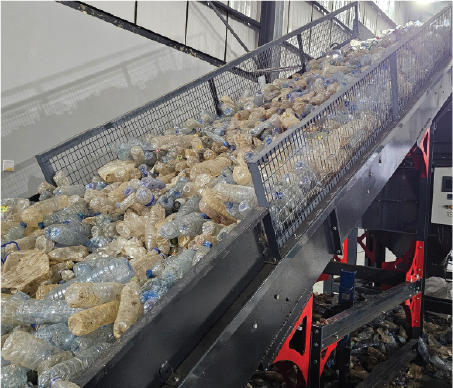Our Impact
SDG 13: Climate Action
Challenge
Plastic waste pollution significantly exacerbates environmental degradation and climate change. The production and disposal of plastic contribute to greenhouse gas emissions, and when plastic waste is not properly managed, it:
- Breaks down into microplastics, contaminating soil and water sources.
- Releases toxic chemicals into the environment, harming biodiversity.
- Emits harmful pollutants when incinerated, further contributing to climate change.
To mitigate these issues, recycling processes must be optimized to reduce emissions, and industries must transition toward sustainable materials and energy sources.
Key Intervention
Deployed advanced recycling equipment powered by renewable energy to reduce the environmental impact.

Outcome
- Lower carbon emissions from sustainable recycling practices.
- Strengthened EEL’s commitment to environmental sustainability.
Lessons learned
- Aligning recycling operations with climate goals strengthens sustainability.
- Investing in renewable energy offers long-term economic and environmental benefits.